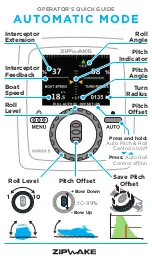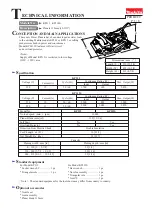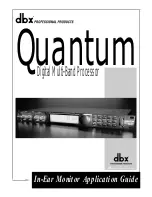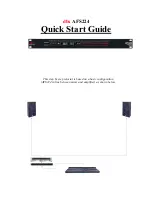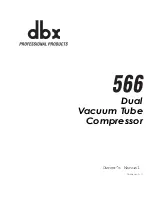
")" (TRACK#) (SPIEL#)
Select Spiel Track:
"*" (SPIEL#)
Select Spiel All:
"+" (SPIEL#)
Select Spiel Cocked:
"/" (GROUP#) (SPIEL#)
Select Spiel Group:
Up to 255 different recordings can be stored on a single card. Each of
these individual recordings are called 'spiels'. These commands can be
used to select an individual spiel on the selected card(s). Individual spiels
can be requested with SPIEL# requests with a range of 01 to FF. Once a
spiel is selected, it will be played on the next start. If the card is looping then
it will play the requested spiel on the next iteration of the loop. If a spiel se-
lection has been made inadvertently, it can be cleared by sending a re-
quest for SPIEL# 00. Spiel requests from the serial port have the highest pri-
ority in the system.
¥¥¥¥¥¥¥¥¥¥¥¥¥¥¥¥¥¥¥¥¥¥¥¥¥¥¥¥¥¥¥¥¥¥¥¥¥¥¥¥¥¥¥¥¥¥¥¥¥¥¥¥¥¥¥¥¥¥¥¥¥¥¥¥¥¥¥¥¥¥¥¥¥¥¥¥¥¥¥¥¥¥¥¥¥¥¥¥¥¥¥¥¥¥¥¥¥¥¥¥¥¥¥¥¥¥¥¥¥¥¥¥¥¥¥¥¥¥¥
":" (TRACK#) (DELAY TIME)
Set Delay:
This command allows the user to adjust the time set for the delay function
on the card selected by TRACK#. The delay can serve two functions:
1) Delay the actual start of playing from 1/34 th of a second to about
1/2 hour from the time the start command is received after a reset
command.
2) While in looping mode, delay for a period of 1/34 th of a second to
about 1/2 hour between each iteration of the loop.
Acceptable values for DELAY are from 0000 to FFFF. Each count is equal
to .029127111 seconds. If the value is 0000, the function is disabled.
EXAMPLE
: to give card 00 a delay value of 1 minute (080CH is equal to
2060 counts, which is equal to 60.00184866 seconds):
: 0 0 0 8 0 C
¥¥¥¥¥¥¥¥¥¥¥¥¥¥¥¥¥¥¥¥¥¥¥¥¥¥¥¥¥¥¥¥¥¥¥¥¥¥¥¥¥¥¥¥¥¥¥¥¥¥¥¥¥¥¥¥¥¥¥¥¥¥¥¥¥¥¥¥¥¥¥¥¥¥¥¥¥¥¥¥¥¥¥¥¥¥¥¥¥¥¥¥¥¥¥¥¥¥¥¥¥¥¥¥¥¥¥¥¥¥¥¥¥¥¥¥¥¥¥
"=" (TRACK#) (ADDRESS)
Set Memory Address:
Address bits 10 through 42 for the Eprom array are stored in the micro-
controller. These can be read out using the Memory Address Status com-
mand, or loaded using this command. Because the addressing for any
memory chips mounted on expansion boards is not direct, this method can
only be used for accessing the first 16 memory chips. If the system is running
when this command is received, then after the current 1 KByte is played,
the new address will take effect. If the system is stopped when this com-
mand is received, then it will take effect as soon as the card is started.
Setting address values only effects the first 16 memory chips.
EXAMPLE
: to set the Digital Repeater on card 00 to address 12345678:
=0012345678
¥¥¥¥¥¥¥¥¥¥¥¥¥¥¥¥¥¥¥¥¥¥¥¥¥¥¥¥¥¥¥¥¥¥¥¥¥¥¥¥¥¥¥¥¥¥¥¥¥¥¥¥¥¥¥¥¥¥¥¥¥¥¥¥¥¥¥¥¥¥¥¥¥¥¥¥¥¥¥¥¥¥¥¥¥¥¥¥¥¥¥¥¥¥¥¥¥¥¥¥¥¥¥¥¥¥¥¥¥¥¥¥¥¥¥¥¥¥¥
Clock Commands:
"<" (TRACK#)
Stop Clock:
">" (TRACK#)
Start Clock:
NOT USED WITH AB-100 AudioBrick:
Only one card in the entire digital
audio system will normally be enabled as the master clock for all the Digital
Audio Repeaters in the system. For multi track systems, starting together and
then running from the same clock will usually give a good enough synchro-
nization between tracks. If a greater level of synchronization is needed,
these commands can be used. They must be used cautiously, however, as
they can cause problems if used improperly.
These commands are used to start and stop the clock on the card speci-
G
ILDERFLUKE
& C
O
.
¥
205 S. F
LOWER
¥
B
URBANK
, C
A
91502-2102
¥
818/840-9484
¥
800/776-5972
¥
F
AX
818/840-9485
35 of 72































